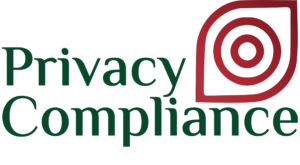OVERVIEW OF HIPAA RULES ON DATA PROTECTION
Overview of HIPAA Act and Its Rules
The Health Insurance Portability and Accountability Act (HIPAA or the Act) is a U.S. federal law designed to protect the privacy and security of individuals’ health information while facilitating healthcare operations and preventing waste, fraud, and abuse in the healthcare system. It was signed into law on 21/08/1996 by then U.S. President Bill Clinton. Since then, there have been many rules and regulations issued to supplement the Act.
HIPAA has several key rules. The Privacy Rule protects confidential Protected Health Information (PHI), limiting its use or disclosure without patient consent, while the Security Rule mandates administrative, physical, and technical safeguards for electronic PHI (ePHI). The Breach Notification Rule requires notifying affected individuals and authorities of data breaches within 60 days. The Enforcement Rule imposes fines and penalties for non-compliance. HIPAA ensures patient data privacy, security, and trust for covered entities and their business associates
HIPAA Privacy Rule
The HIPAA Privacy Rule establishes standards to protect individually identifiable health information, known as Protected Health Information (PHI), held by covered entities such as healthcare providers, health plans, and healthcare clearinghouses. PHI includes data related to an individual’s health, healthcare services, or payment for those services, encompassing identifiers like names, addresses, and Social Security Numbers when linked to health information. The rule restricts the use or disclosure of PHI without patient authorization, except in specific cases like treatment, payment, or healthcare operations, and grants patients rights to access, amend, and receive an accounting of their PHI disclosures. It also excludes de-identified health information, employment records held by covered entities as employers, and certain education records from its scope.
The Privacy Rule mandates that covered entities adhere to the “minimum necessary” principle, limiting the use, disclosure, or request of PHI to the least amount needed for the intended purpose, except in cases like treatment or disclosures to the individual. Patients have rights to receive a notice of privacy practices, request restrictions on PHI use, access, amend their PHI and specify confidential communication methods. Covered entities must implement written privacy policies, appoint a privacy official, train their workforce, and maintain safeguards to prevent unauthorized PHI access. These measures ensure patient control over their health data and foster trust in the healthcare system.[1]
HIPAA Security Rule
The HIPAA Security Rule focuses on safeguarding electronic Protected Health Information (ePHI) by setting standards for covered entities and their business associates to protect the confidentiality, integrity, and availability of ePHI. Unlike the Privacy Rule, it applies only to electronically stored or transmitted PHI and requires entities to assess their size, complexity, technical infrastructure, and potential risks to implement scalable security measures. The rule outlines administrative, physical, and technical safeguards, such as risk assessments, access controls, and encryption, to defend against foreseeable threats and unauthorized access to ePHI.
Covered entities must conduct regular risk analyses, appoint a security official, and train their workforce on security policies, ensuring only authorized personnel access ePHI. Physical safeguards limit facility and workstation access, while technical safeguards include audit controls and authentication measures. Written business associate agreements (BAAs) are required to ensure that business associates and their subcontractors comply with the Security Rule. Entities must also maintain and update documentation of security policies for six years, ensuring flexibility to adapt to evolving threats and technologies while protecting sensitive health data.[2]
HIPAA Breach Notification Rule
The HIPAA Breach Notification Rule mandates that covered entities and business associates notify affected individuals, the Department of Health and Human Services (HHS), and, in some cases, the media following a breach of unsecured PHI, defined as PHI not rendered unusable or unreadable to unauthorized individuals. A breach is presumed unless a risk assessment demonstrates a low probability of compromise, considering factors like the nature of the PHI, the unauthorized recipient, and mitigation efforts. Exceptions include unintentional access by authorized personnel, inadvertent disclosures within the same entity, or cases where the recipient cannot retain the PHI.
Notifications must be issued within 60 days of breach discovery. Individuals are notified via first-class mail or email, with substitute notices (e.g., website postings) for outdated contact information. Breaches affecting over 500 individuals in a state require media notification, while all breaches must be reported to the HHS Secretary, with larger breaches reported within 60 days and smaller ones annually. Business associates must inform covered entities promptly, enabling coordinated responses. These requirements ensure transparency and prompt action to mitigate harm from breaches.[3]
HIPAA Enforcement Rule
The HIPAA Enforcement Rule outlines the procedures for investigating violations of HIPAA’s Privacy, Security, and Breach Notification Rules and establishes penalties for non-compliance, enforced by the Department of Health and Human Services’ Office for Civil Rights (OCR) since its finalization in 2006 and amendment by the Health Information Technology for Economic and Clinical Health Act or HITECH Act in 2009. OCR investigates complaints, conducts compliance reviews, and audits covered entities and business associates, resolving most cases through voluntary compliance, technical assistance, or corrective action plans. If non-compliance persists, OCR can impose civil monetary penalties (CMPs) based on a four-tiered structure reflecting culpability, adjusted for inflation as of 2024:
- Tier 1 (Unknowing) ranges from $141 to $71,162 per violation with a $2,134,831 annual cap;
- Tier 2 (Reasonable Cause) from $1,424 to $71,162 per violation with a $2,134,831 cap;
- Tier 3 (Willful Neglect, Corrected) from $14,232 to $71,162 per violation with a $2,134,831 cap; and
- Tier 4 (Willful Neglect, Uncorrected) from $71,162 to $2,134,831 per violation with a $2,134,831 cap.
Criminal penalties, handled by the Department of Justice, apply to individuals or entities knowingly violating HIPAA. While civil penalties typically target covered entities or business associates, individuals like healthcare professionals can face criminal liability for intentionally accessing or disclosing PHI for impermissible reasons, such as theft for financial gain or disclosures with malicious intent. A lack of specific knowledge about HIPAA violations is not a valid defense if the individual is aware of the facts constituting the offense.
Criminal penalties are tiered based on severity:
- Tier 1 (reasonable cause or no knowledge) carries up to 1 year in jail;
- Tier 2 (obtaining PHI under false pretenses) up to 5 years; and
- Tier 3 (obtaining PHI for personal gain or with malicious intent) up to 10 years,
with fines and potential restitution for profits gained. The increasing value of PHI on the black market has led to more cases, prompting stricter enforcement. To prevent violations, organizations must implement robust controls, train staff on HIPAA criminal penalties, and ensure prompt detection of improper PHI access or theft, as state attorneys general are actively pursuing significant penalties to deter violations.[4]
Reference:
[1] U.S. Department of Health and Human Services ‘Summary of the HIPAA Privacy Rule’ <https://www.hhs.gov/hipaa/for-professionals/privacy/laws-regulations/index.html>
[2] U.S. Department of Health and Human Services ‘Summary of the HIPAA Security Rule’ <https://www.hhs.gov/hipaa/for-professionals/security/laws-regulations/index.html>
[3] U.S. Department of Health and Human Services ‘Breach Notification Rule’ <https://www.hhs.gov/hipaa/for-professionals/breach-notification/index.html>
[4] The HIPAA Journal ‘What are the Penalties for HIPAA Violations?’ <https://www.hipaajournal.com/what-are-the-penalties-for-hipaa-violations-7096/>

𝗜𝗻𝘁𝗿𝗼𝗱𝘂𝗰𝗶𝗻𝗴 𝘁𝗵𝗲 “𝗕𝗶𝗼𝗺𝗲𝘁𝗿𝗶𝗰 𝗗𝗮𝘁𝗮 𝗶𝗻 𝗩𝗶𝗲𝘁𝗻𝗮𝗺” 𝗛𝗮𝗻𝗱𝗯𝗼𝗼𝗸 𝗯𝘆 𝗣𝗥𝗜𝗩𝗔𝗖𝗬𝗖𝗢𝗠𝗣𝗟𝗜𝗔𝗡𝗖𝗘
🚀 𝗜𝗻𝘁𝗿𝗼𝗱𝘂𝗰𝗶𝗻𝗴 𝘁𝗵𝗲 “𝗕𝗶𝗼𝗺𝗲𝘁𝗿𝗶𝗰 𝗗𝗮𝘁𝗮 𝗶𝗻 𝗩𝗶𝗲𝘁𝗻𝗮𝗺” 𝗛𝗮𝗻𝗱𝗯𝗼𝗼𝗸 𝗯𝘆 𝗣𝗥𝗜𝗩𝗔𝗖𝗬𝗖𝗢𝗠𝗣𝗟𝗜𝗔𝗡𝗖𝗘 Biometric data is rapidly becoming the backbone of identity verification, authentication, and monitoring systems – and is now classified as one of the most sensitive categories of personal data under Vietnam’s Personal Data Protection Law 2025. To help organizations, businesses, and privacy professionals navigate this […]
Learn more

VIETNAM’S LEGAL FRAMEWORK FOR BACKGROUND CHECKS
𝗕𝗔𝗖𝗞𝗚𝗥𝗢𝗨𝗡𝗗 𝗩𝗘𝗥𝗜𝗙𝗜𝗖𝗔𝗧𝗜𝗢𝗡 (𝗕𝗚𝗩) 𝗜𝗡 𝗩𝗜𝗘𝗧𝗡𝗔𝗠: 𝗪𝗛𝗔𝗧 𝗘𝗠𝗣𝗟𝗢𝗬𝗘𝗥𝗦 𝗡𝗘𝗘𝗗 𝗧𝗢 𝗞𝗡𝗢𝗪 As Vietnam moves toward full enforcement of the Personal Data Protection Law in 2026, background verification (BGV) practices are coming under closer legal and ethical scrutiny.Our latest article breaks down what checks employers can legitimately perform, when they are required by law, and how […]
Learn more

HIPAA PRIVACY RULE: MECHANISMS FOR PERSONAL HEALTH INFORMATION PROTECTION
HIPAA PRIVACY RULE: MECHANISMS FOR PERSONAL HEALTH INFORMATION PROTECTION The Privacy Rule is one of the core rules of HIPAA which governs the conditions, timing, and circumstances under which protected health information (PHI) may be used or disclosed. It establishes standards that grant patients rights over their health data, enhancing their control over its use […]
Learn more